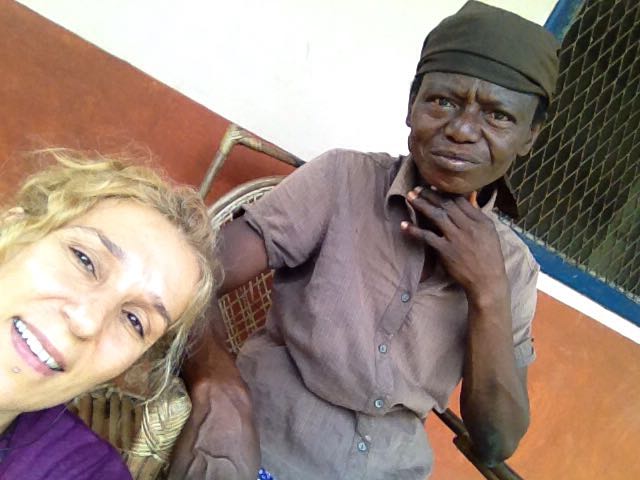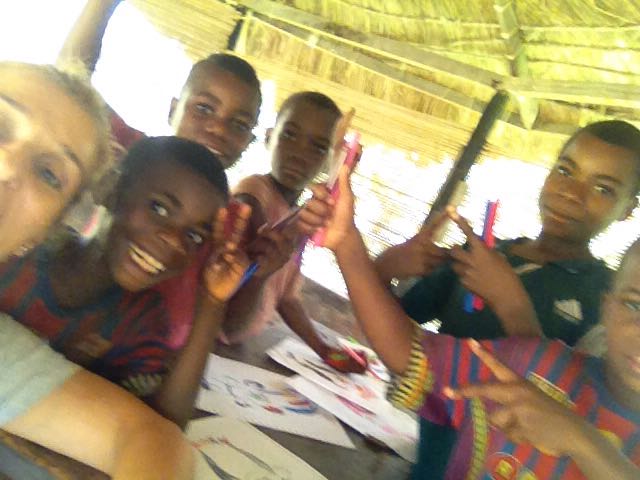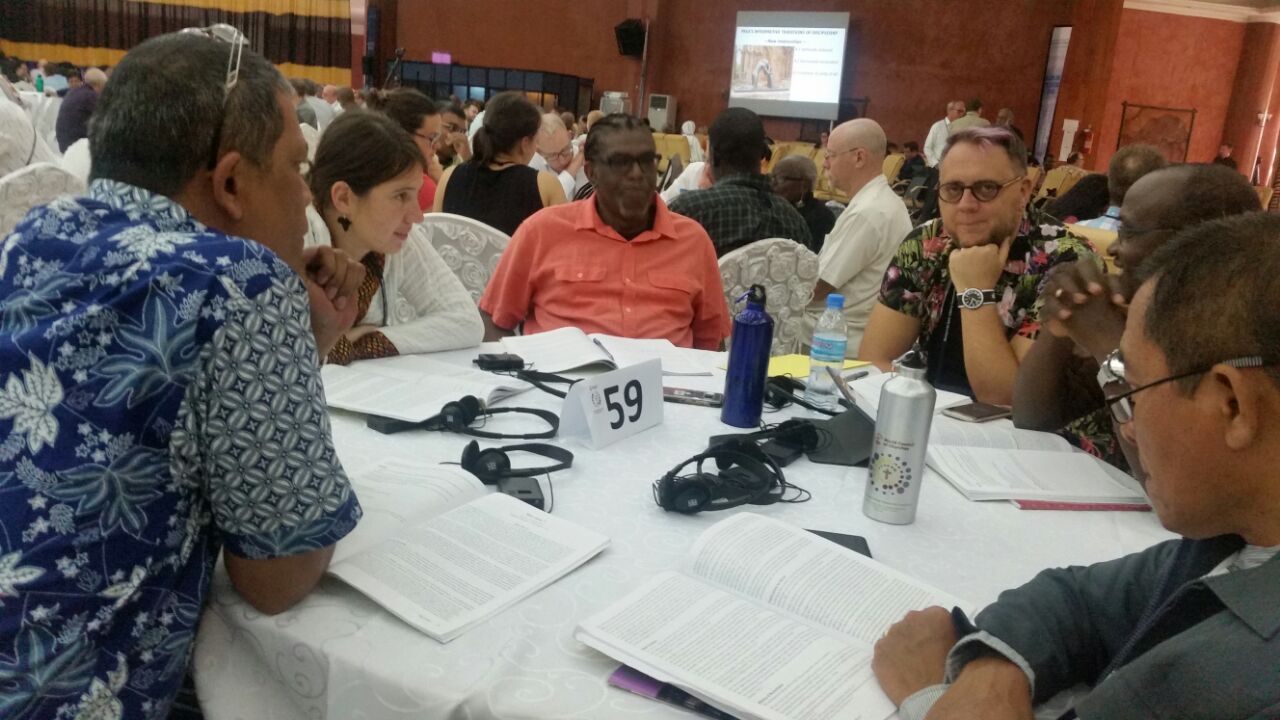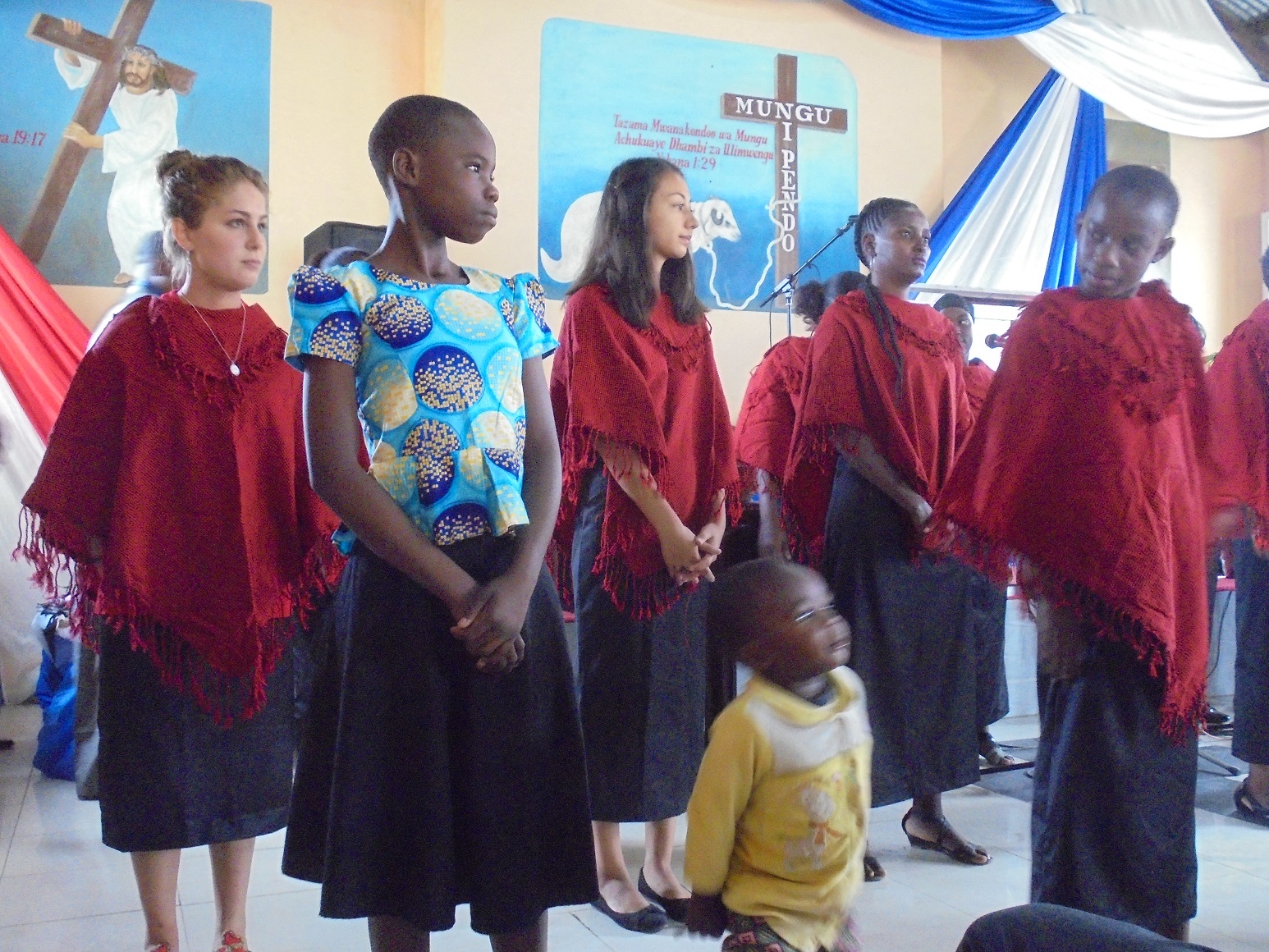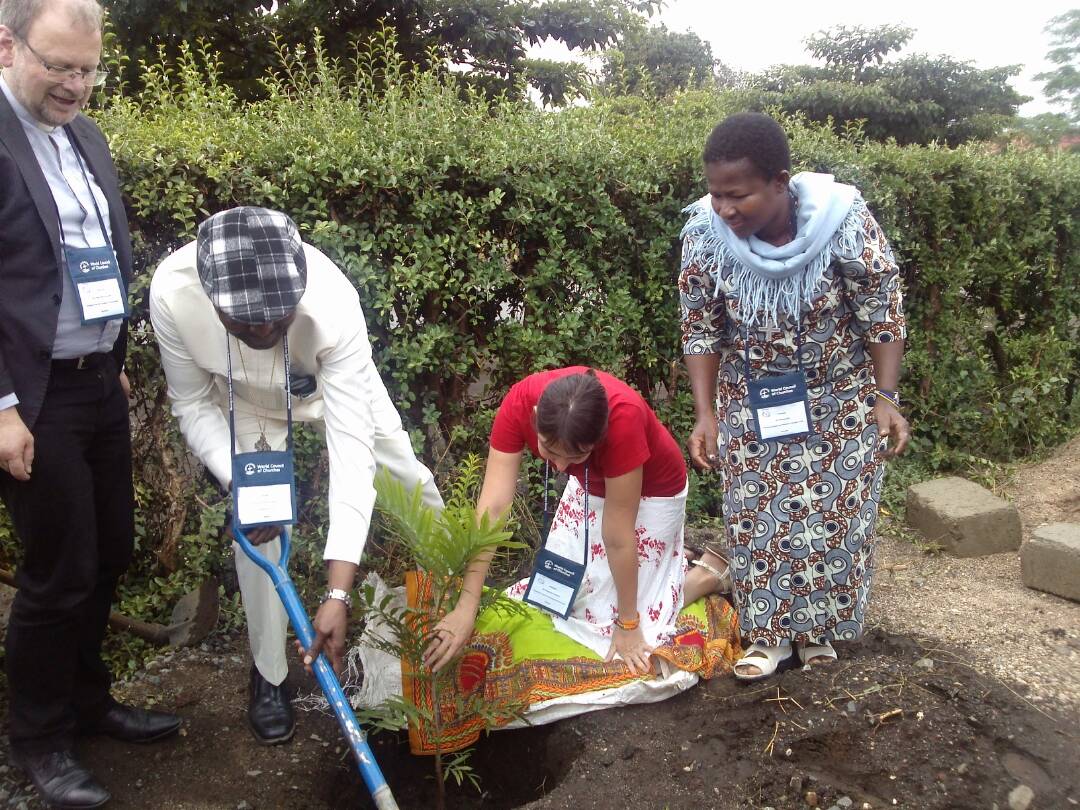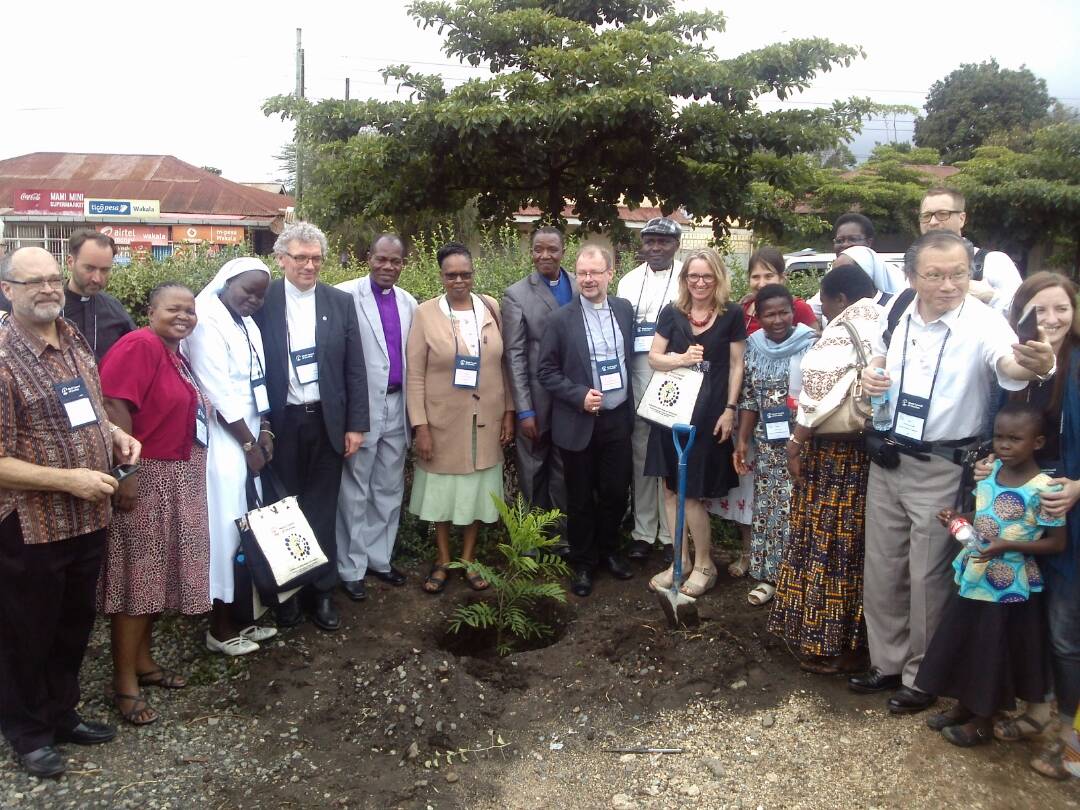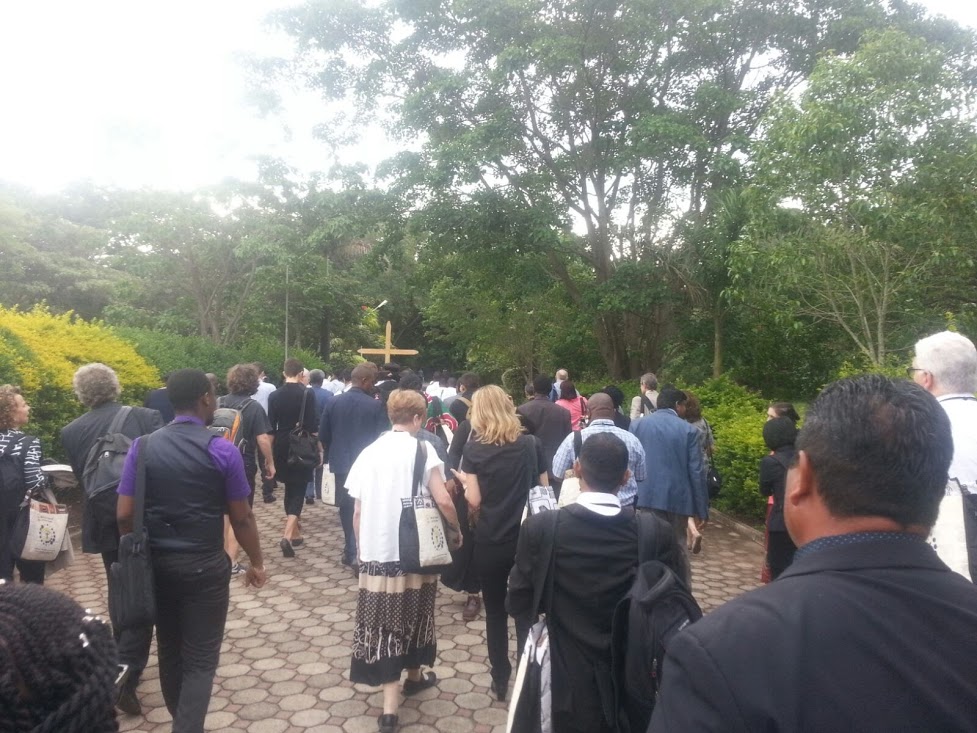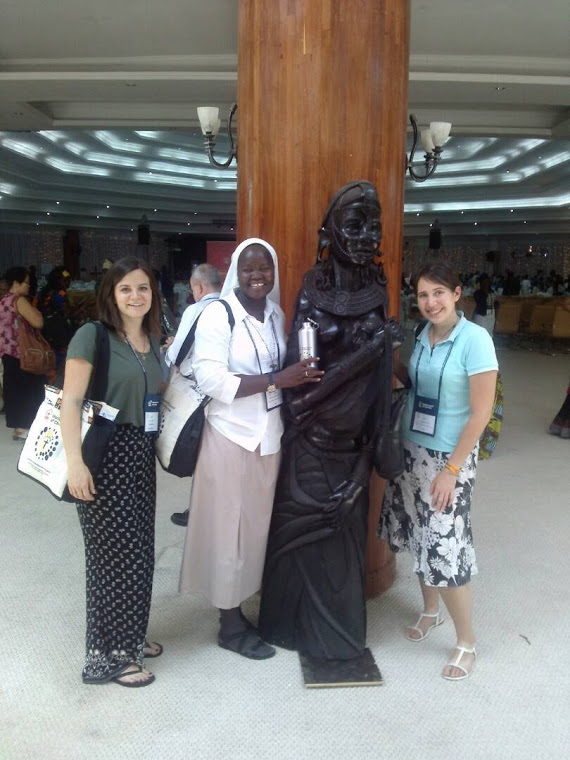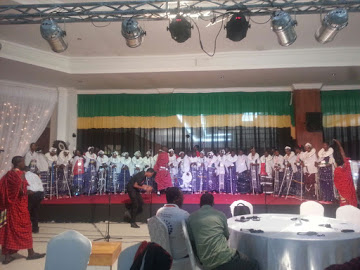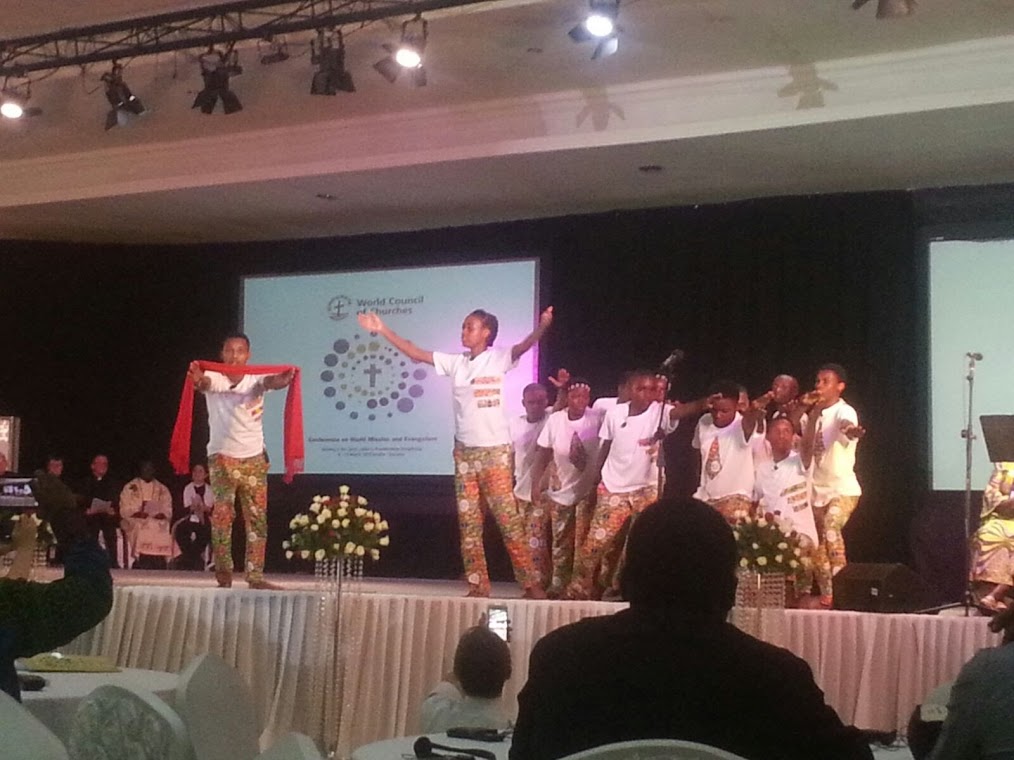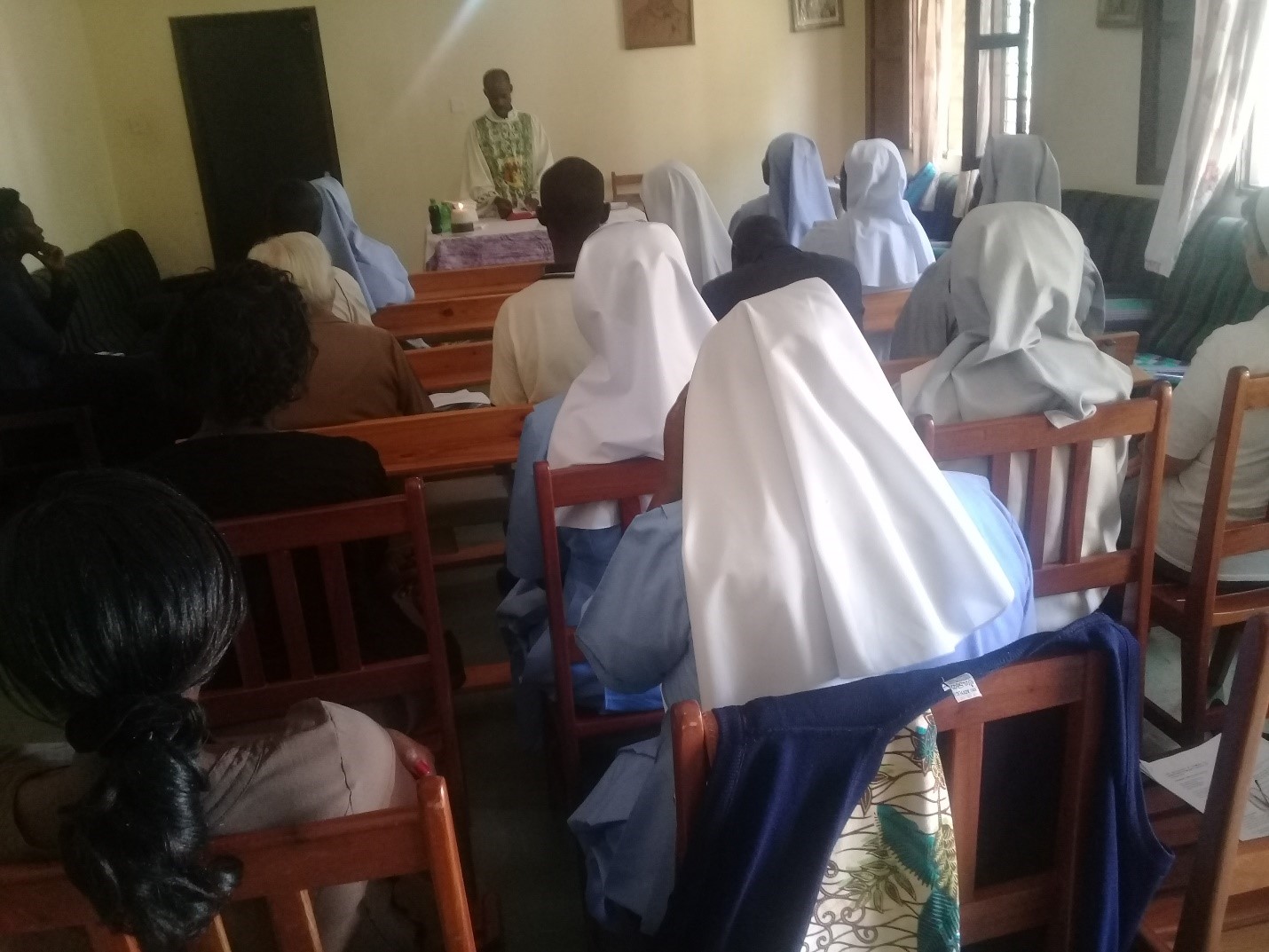
Greetings from CLMU and we hope all is fine and well over there. We are moving on with everything well with the grace of God.
We had our Lenten recollection in our apostolic community of Our Lady of Africa Mbuya Parish which was facilitated by Fr. John Bosco Nambasi – MCCJ with a theme of Relevancy of Religious Life in Today’s Society- 1 Kings 3:4-13 and Mt. 6:30
He illustrated many characteristics of our world that affect our prayer life and how to live in harmony with one another and the people we administer to. Some of these characteristics include dire need/poverty, yearning for authentic spirituality, commitment/stability, unity meaning of real love of God. He further illustrated the need to live the spirit of poverty as mentioned by Pope Francis who has declared 2018 as the year for the poor which is a true reflection of the world we live in which is full of poor people. This poverty he said is of material, spiritual and otherwise.
He also tasked us to come away to some lonely place and rest awhile. This helps to listen to ourselves (discernment), pray and make relevant options for apostolic work. A life without reflection is not worth living as a great writer once said. When we retreat or recollect to a lonely place for a meaningful prayer, we are likely to attract others to ourselves and this will make us relevant to the current world we are living with full of challenges.
Many people are living like sheep without shepherd in which there is no care from family to society and the parental roles for the young ones is lacking and no guidance for those who need it. Our apostolic missions should target these people who are like sheep without shepherd. This is where majority of poor people are and we need to do all that we can to improve their lives. He said to prioritize the poor is to set to teach them and impact gospel values/virtues in society.
He further said that being as opposed to doing is what we must be aware of. “Being” refers to what our core values are as religious involving prayers, charity in addition to our vows and commitments we made. The essence of being is therefore to strive to live a life of faithfulness, justice, integrity of heart other than having long life, riches and founding oneself on capitalistic mentalities of consumerism, relativism, scientism and individualism. Doing on the other hand refers to trying to live according to public opinion and to do everything to impress the public which at the end makes us to live double life full of stress. He said the bad die early and the good do great. We must try to live a life balanced to what our daily cores demand. He urged us to pray at all times and he cited that there is scientific evidence (research work) indicating that people who pray remain at peace with themselves and others and they are likely to live longer than their counterparts (The Longevity Project a book by Dr. Leslie Martin & Dr. Howards S. Friedman reports of 20 years of follow up research on 1,500 adults since 1921). Also St. Augustine after his many years of living earthly life after finding about God remarks “you have made us Oh Lord our hearts are restless until they rest in you”. These researchers found out that people who pray get more engaged in social work and free service to others than those who do not value prayer. He emphasized the need of Lectio Divina which focuses on personal prayer focused on the scriptures which we must be able to relate to our personal life and work. He said Lectio Divina is different from community prayers like from the Breviary which many times we confuse.
This is the time also for us to renew our vows and commitments on daily basis basing on the charism of Comboni Missionaries, we need to renew our vows we made and commitments that we made the first time and see if we are still on the road or we have deviated from the originality. We need to pray at all times and Fr. Paulino Mondo MCCJ Assistant Parish Priest of Our Lady Of Africa Mbuya Parish brought it beautifully in one of the morning Masses that the Prayer of our Father has three points that we always need to focus; it teaches us to ask for food which we use to nourish us and we also need to ask for this food for the poor and needy and should endevour to do this for the benefit of others. Secondly he said it teaches us to be delivered from the sin and evil one which is the core of this Lenten period and this we can do through daily self-examination of consciousness like what St. Ignatius of Loyola teaches us in his beautiful book of Spiritual Exercises and personal reflections during our solitude moments. The third element is prepare for death as we say in the prayer of Hail Mary…..death is certain we shall die and we need to prepare for this moment sooner or later we shall die. When we come to the final judgment what shall be said of us, shall we be the people on the right of the Lord or the ones on his left who are cursed and cast into eternal hell….??? The answer must be deep in our hearts.
What should be done despite all these?
Fr. John Bosco MCCJ gave us some suggestions in how to live with the above issues that affect our life more so in the spirit of Lenten season;
We need to adapt to novelty and renew our life through putting more emphasis on prayer and fasting, common apostolate in all that we do. He said Religious life should not be run like companies that are managed aiming at making outstanding brands. We are all human beings in need of mercy of God to live a life worthy of his call. He said superiors need to look for new ways to animate communities and we must read the signs of the time in terms of technology and human development. We must come out of comfort zones that this is how it used to be done, times have changed. Members should be happy with their vocation, put Christ/Church at the centre of their life and reduce on the measure of consumption of social media, money, digital gadgets, power/politics and bodily satisfaction of sex and beauty. We must stop the saying that “I do this because of obedience” when someone puts us in such a task contrary to our vocation
He also said we live God centred life through looking at the evangelical counsels, Lectio Divina and daily reflection on the founder’s charism. Have constant proximity to the gospel values, accept your weaknesses and work on them to live faithfully.
He also said we be life care givers. There are many religious men and women today who have very wide knowledge about humanity and the institutions they run but have no heart for the human person and yet our Lord Jesus prayed that “Father may they be one…. John 17:21”. They have knowledge for excellence of institutions they run but nothing of the life in Christ. He said vows therefore help us to affirm meaning, obey the laws of nature and God and face life with realism. He finalized this point by saying “you can only make decisions from a thoughtful and discerned position if you accept the life cycle: Birth-growth-death. Let us therefore bring Christ to the people we work with, the people we lead and the people we live especially in the different institutions we lead and work with.
We were also blessed to receive MCCJ Council Members from Rome who made apostolic visit to us and it was such a wonderful moment. They tasked us to do our work in the spirit of St. Daniel Comboni to the poor and the needy. They told us to promote vocations as very many Priests and Comboni Missionary Sisters are advanced in age and there is need to bring many to the table of the Lord. Therefore everything we do we must promote the message of St. Daniel Comboni to the young people so that they carry the candle of St. Daniel Comboni burning to the rest of the world.
From Uganda we wish you all happy Lenten season as we discover where we went wrong in order to be worthy followers of Jesus and renew our lives imitating the Lord when he was in the desert for the 40 days living among the wild animals with the angels guarding him. Our wild animals include hatred, jealousy, pride, lust, gluttony, greed and many others that we call the angels to guard us from.
Eric Ezati Comboni Lay Missionaries. Uganda




